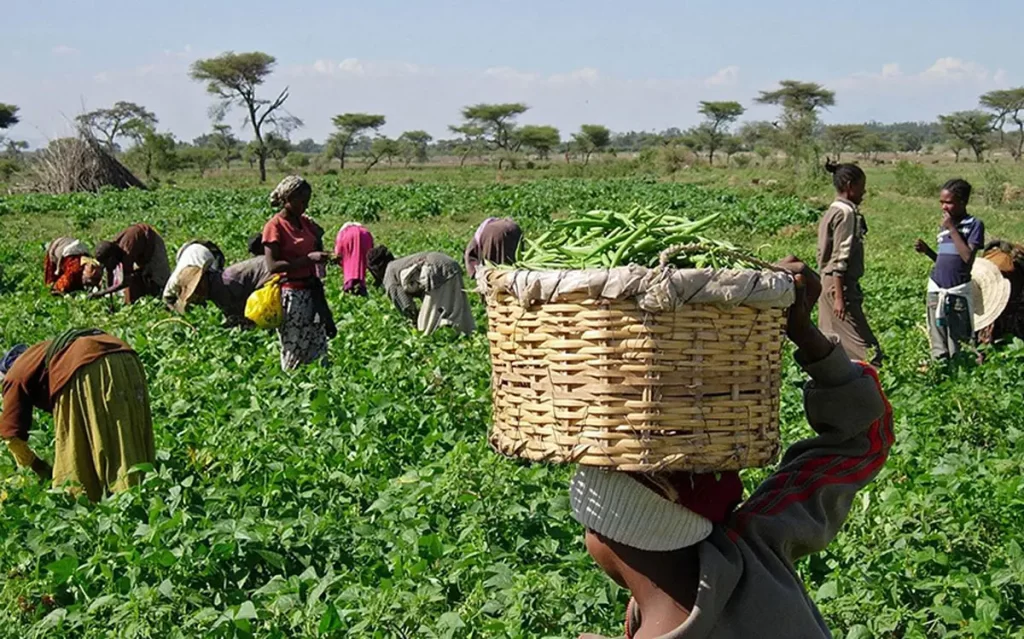Read in
…move to sensitize, mitigate practice
AS over 7 million people globally including Nigerians get infected and killed with air pollution related diseases, the Federal Government and development partners, Tuesday, begged farmers to stop farmland burning practices as part of land preparation for crop cultivation.
Speaking on the impact of air pollution from burning farm residues by farmers to cultivate their crops, the Permanent Secretary, Federal Ministry of Agriculture and Food Security, Temitope Fashedemi, in an address of welcome at the ‘Inception Workshop on the Implementation of Nigeria Abatement of Short-lived Climate Pollutants, SLCP, in the Nigerian Agricultural Sector by reducing Open Field Burning (No Burning Alternatives), held in Abuja, explained that the project is to help reduce short lived carbon emission from agricultural waste that will help to increase the adaptive capacity of farmers.
According to Fashedemi who was represented by the Director, Agricultural Lands and Climate Change Management Services, Oshadiya Olanipekun, said burning of farm waste openly on the farm is an unsustainable practice that can lead to air pollution, soil degradation and climate change.
The project targets a pilot of 500 farmers formed into 20 groups of 25 farmers each, selected rom communities in Gboko Local Government Area of Benue State including 45 agricultural extension officers across the six geopolitical zones of the country within 18 months, which is between February 2024 and July 2025, and it is being sponsored funded by Climate Clean Air Coalition.
He said: “There are key opportunities that exist in the sector to transform towards climate-smart systems that addresses both food security and climate change.
“Nigeria Agricultural sector contributes 24 per cent to the Country’s GDP and employs over 70 per cent of the population with predominantly small holder farmers, a very critical reason emphasis must be on climate resilience in the sector.
“Nigeria being one of the few countries to highlight its commitment to reduce SLCP as part of its effort to mitigate the effect of Climate Change, the updated NDC approved the inclusion of National Action Plan to Reduce short lived climate pollutants (SLCP) like black carbon, methane and hydrofluorocarbons (HFCs), hence, the ministry submitted an application and approval was given by CACC for the project Abatement of Short-Lived Climate Pollutants (SLCP) in the Nigerian agricultural sector by reducing Open Field Burning (No Burn Alternatives).
“The project is to help reduce short lived carbon emission from agricultural waste that will help to increase the adaptive capacity of farmers with the replacement of open field burning of agricultural waste with clean alternatives like conservation agriculture, briquette making etc.
“Open burning in agriculture refers to the practice of intentionally setting fire to agricultural residues or fields for various purposes such as land clearing, managing crop residues, controlling pest or preparing fields for planting. It has been traditionally used as a cost – effective method for agricultural management. This unsustainable practice can lead to air pollution, soil degradation and Climate Change.”
He also assured that the Federal Ministry of Agriculture and food security is in full support of the project “to reduce open burning where it is predominant.”
He also made it known that, “The project will target 500 farmers, 35 extension officers and the training demonstration and capacity activities will take place in Gboko, Benue state. The result will be packaged and shared with extension officers and key influencers from other LGAs and States for implementation to reduce SLCP across the nation.”
Earlier, in a remark, the Country Director, Self Help Africa, Nigeria, Joy Aderele, said it has given her organization concern as farmers in Nigeria continue to practice burning of farm residues, which also had adversely, and the negative impact on the health of Nigerians and theirs.
According to Aderele, the effect of Short-lived Climate Pollutants, SLCPs, on human health, agriculture and ecosystems have resulted in 7 million people dying per year globally, because of the harmful impact they have on the wellbeing of Nigerians.
“The adverse effect of SLCPs as they relate to negative impacts on human health, agriculture and ecosystems are all harmful to the wellbeing of our people with an estimated 7 million deaths per year globally, attributed to both indoor and outdoor pollution. In 17 countries across Africa, air pollution contributes to more than 50 per cent of pneumonia deaths as reported by the World Health Organization (WHO).
“The Federal Ministry of Agriculture is the architect of this programme. They designed the project because they are the ones that are the government and the duty-bearers to ensure that they promote climate change and food security in Nigeria.
“There is a national action plan on climate change, and then for the Ministry of Agriculture, they also have a plan to stop these short-lived climate pollutants, and we are feeding into that plan. Our work is a small part of what they have designed, their big picture and big vision to ensure that Nigeria gets better.
“So our sustainability plan is that as an INGO we are not working alone because we work with the government including extension workers, our work is to strengthen existing structures. We’re not creating anything new. The people that would normally work with these farmers are the people we are working with to create that awareness to these farmers to ensure that they do the right thing”, Aderele said.



